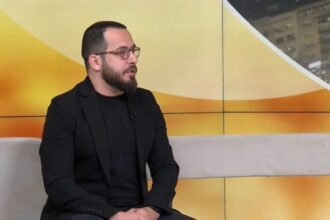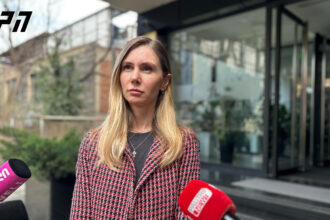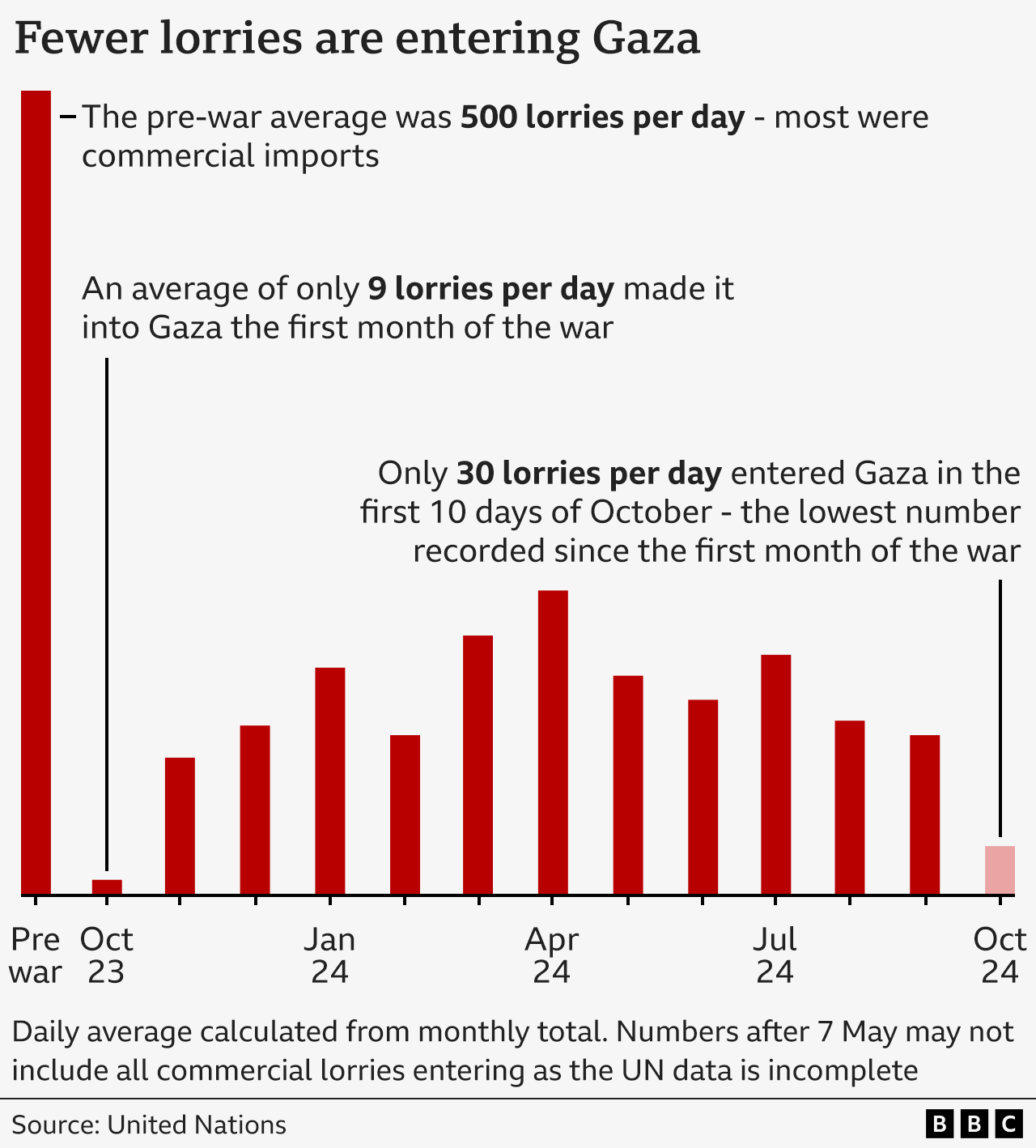Getty ImagesSince Israel launched a renewed offensive in northern Gaza twelve days ago, human rights groups claim that virtually no aid has reached the area. Israel’s statistics show that overall aid deliveries to Gaza have fallen compared to the same period last September. This has led to accusations that the Israeli army is blocking food aid in an attempt to starve Hamas fighters. A top UN official has warned that “supplies are running out” for north Gaza. Civilians on the ground have told the BBC that this situation is unsustainable. Joyce Msuya, the UN’s Acting Under-Secretary-General for Humanitarian Affairs and Emergency Relief, said on Monday that Israel blocked all food aid entering northern Gaza from 2-15 October. She said that only a “trickle of aid” had been allowed into the territory on Monday but warned that a shortage of fuel would force bakeries to shut down within days. The UN’s own statistics show that the number of lorries in Gaza is the lowest it has been since the start of the war one year ago. The checkpoint lies south of Gaza City where the main coastal road meets an east-west Israeli military route that divides the territory into two halves. Ms Msuya stated that the distribution of existing supplies in northern Gaza was continuing, but that supplies were “quickly diminishing”. WFP’s director in the Palestinian Territories Antoine Renard told the Financial Times that his teams had only a week’s worth of flour left. Cogat reported that 50 trucks carrying aid arrived in the north of Gaza on Wednesday. Georgios Petropoulos, head of the UN Office for the Coordination of Humanitarian Affairs Gaza, told the BBC that aid groups are often unable to distribute aid effectively when it enters Gaza through Israeli checkpoints. He said that although 50 truckloads were allowed to enter Gaza Monday, Israel Defense Forces allowed only 30 of them to be collected. What the Israeli military does in northern GazaThe IDF has launched a new offensive against Hamas 12 days ago. It claims it wants to stop the fighters of the group from regrouping. Many refused to leave, exhausted by constant displacement and afraid of heading to a place where they had no access to supplies. Israeli forces have bombarded and surrounded the densely populated Jabalia area to the north of Gaza City, which includes a urban refugee camp. Israel insists there is no policy to starve the northern Gaza. However, some speculate that the drop in humanitarian supplies may indicate the implementation of the “Generals’ plan”. Retired Maj Gen Giora Eiland told the BBC recently that civilians in northern Gaza should be evacuated, and the remaining Hamas militants would have to choose between “surrendering or starving”. Prime Minister Benjamin Netanyahu said in an interview with Le Figaro the “allegation we are pursuing deliberate policy of star He had told the UN previously that Israel was facilitating food supplies to Gaza that amounted to “more than 3,500 calories per day for each man, woman and child”. What Palestinians in Northern Gaza are sayingPeople from northern Gaza told the BBC that food and water supplies have dropped in recent days. Awad Ashour, from Jabalia, said that residents in his area are receiving very little food, and water is also scarce. “Every two or three day they bring us one lunch or breakfast,” said he. “Life in northern Gaza is becoming increasingly difficult, there is no food,” he said. “We also suffer high prices, for example, a can beans. It costs 20 shekels, which is $5.30. I can’t afford it because neither my children nor myself work. We don’t have any income.” Sayab al-Zad noted that it was nearly impossible to get meat or fresh vegetables. He said only a small number of people could afford these products. He said that his family mostly subsisted on bread. “To get bread is a big challenge for us, you can lose a life for getting bread,” he stated. “I see that families are winterizing their shelters with plastic sheeting. He told the BBC that you can see them being put on top of the plastic boxes where people live. “The problem is we were supposed give it to the people who needed it for free. They’ve been sold to them, but they were looted. Now instead of getting a free plastic sheet so that you at least have a waterproof roofing for the rain, you’re further in debt. “The damage that we’re witnessing is immense. We see looted supplies and equipment being sold to people who are already in desperate poverty. IPC warns about famineMichael Fahri, UN Special Rapporteur for the right to Food, accused Israel in an interview with BBC Newshour on Monday of a deliberate policy that would starve Gaza. He said: “We have seen the effects of Israel’s starvation campaign. People are dying not only from hunger but also from dehydration and diseases that often follow.” “Israel has told the world what it is doing, and it’s done it. We’ve seen its effects. “Thursday’s Integrated Food Security Phase Classification report (IPC), backed by the UN, said that about 1.84 millions people were experiencing acute food insecurity. 664,000 of those people faced “emergency levels” of hunger, and almost 133,000 faced “catastrophic levels”. The IPC attributed this This is simply intolerable. The letter was signed by Secretary Blinken and Lloyd Austin, the Defence Secretary, to the Israeli government. The letter was signed by Secretary of State Antony Blinken and Defence Secretary Lloyd Austin. They wrote to “underscore US government’s concern over the deteriorating human rights situation in Gaza and to seek urgent and sustained action from your government this month”. Josep Borrell is the EU’s chief of foreign policy. He scorned this warning. “The US told Israel to improve Gaza’s humanitarian aid, but they delayed it by a month,” he said to reporters in Brussels. “At the current rate of deaths, a month’s delay is not acceptable.” It’s just too many. It’s too many people.
Read More @ www.bbc.com




